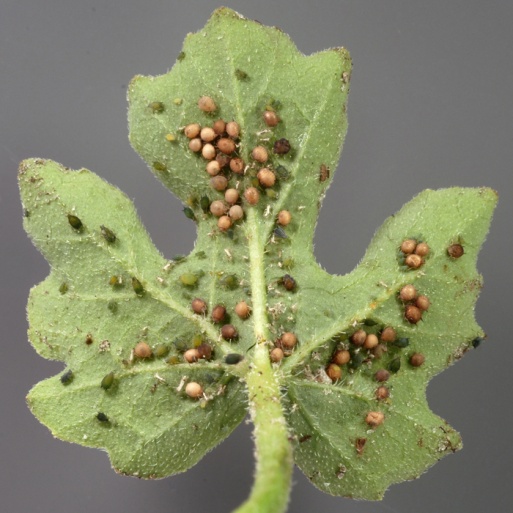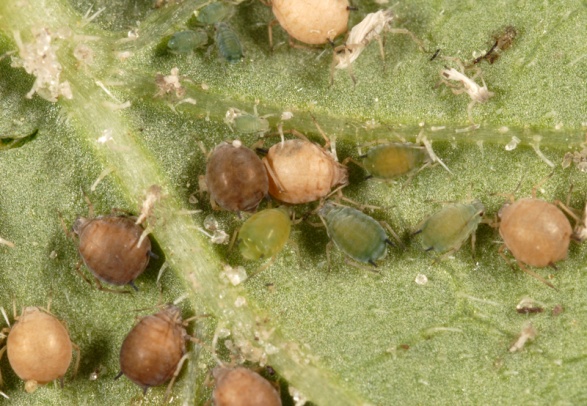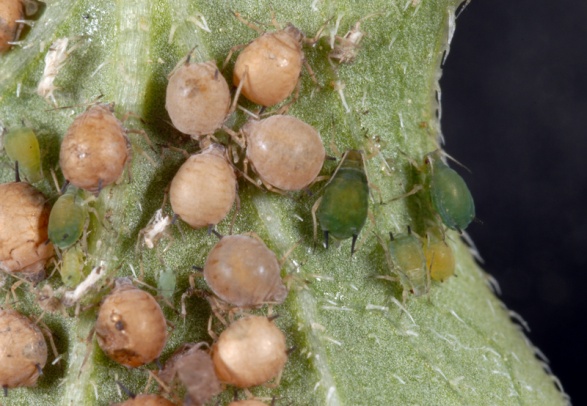
Aphelinus gossypii (Timberlake)
(Insecta: Hymenoptera: Aphelinidae)
Adults are minute, dark wasps with transparent wings. Parasitized aphids turn brown or black and remain attached to the foliage as mummies.
Females both feed on and lay eggs into aphid hosts, and thereby cause high mortality in aphid populations. Each female may consume up to 90 and parasitize up to 600 aphids during her lifetime of 20 to 27 days. The parasitized aphid host mummifies and accommodates the parasitoid’s development until the latter emerges as an adult.
Aphelinus gossypii was introduced into Florida from Hong Kong in 1963 to control green citrus aphid, but now is commonly found on other aphid species.
Images
To save the Web-optimized images shown below to your hard drive:
PC users: right click to "Save Picture (or Image) As..."
Mac users: click and drag to your desktop.

Melon aphids, Aphis gossypii, (green) and their brown mummies that are parasitized likely by Aphelinus gossypii (Timberlake) on a melon leaf
(Photographer: Lyle Buss, University of Florida)

Mummies (brown) of melon aphid, Aphis gossypii, (green) parasitized likely by Aphelinus gossypii (Timberlake)
(Photographer: Lyle Buss, University of Florida)

Mummies (brown) of melon aphid, Aphis gossypii, (green) parasitized likely by Aphelinus gossypii (Timberlake)
(Photographer: Lyle Buss, University of Florida)